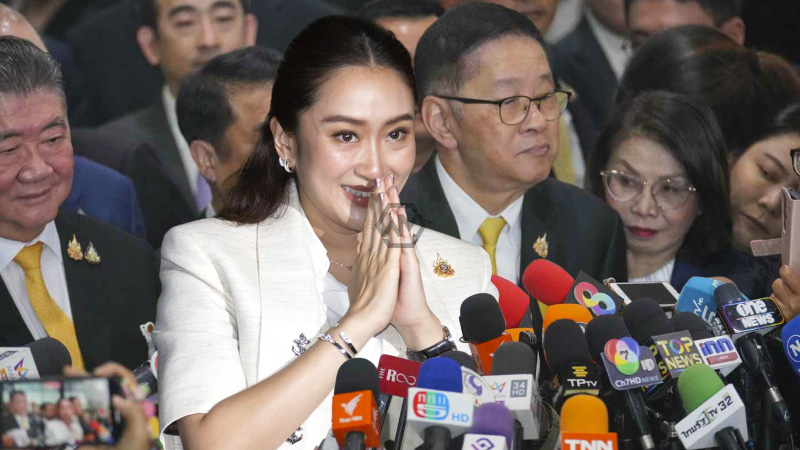- Thailand PM Paetongtarn Shinawatra won the no-confidence vote with 319 votes in favor.
- Critics accuse her of being influenced by her father, former PM Thaksin Shinawatra.
- The opposition blames her administration for economic struggles, crime, and corruption.
Paetongtarn Shinawatra’s victory in the no-confidence vote reaffirms her party’s hold on power, but it does little to dispel concerns over her governance.
Despite the criticism, Paetongtarn remains confident in her leadership, vowing to work for the people. She thanked both supporters and opponents, emphasizing that differing perspectives drive her government to improve.
Political Unrest in Thailand: Paetongtarn Shinawatra’s Leadership Under Scrutiny
Paetongtarn Shinawatra’s leadership has been a subject of controversy since she took office, with critics claiming her policies primarily serve her family’s interests. The opposition views her as an extension of Thaksin Shinawatra’s political influence, which has been a polarizing force in Thailand for nearly two decades. This no-confidence debate once again exposed the deep ideological rift between her populist support base and the establishment-backed opposition.
The economic downturn and rising corruption concerns have only intensified scrutiny on her government. Critics argue that under her leadership, Thailand has struggled with air pollution, crime, and economic stagnation, exacerbating public frustration. However, her supporters believe these attacks are politically motivated attempts to destabilize her government.
Her party, Pheu Thai, has consistently maintained electoral dominance by appealing to the working class and rural voters. This dynamic has long fueled clashes with Thailand’s conservative elites, military, and royalists, who see Thaksin’s influence as a threat. As long as this divide persists, political tensions in Thailand are unlikely to subside.
Moving forward, Paetongtarn must navigate a fragile political landscape, balancing economic reforms while countering allegations of nepotism. If she fails to address key governance concerns, opposition forces could leverage public discontent to mount stronger challenges in the future.
Paetongtarn Shinawatra may have survived the no-confidence vote, but the political turbulence in Thailand is far from over. Her leadership will be tested by mounting opposition, economic challenges, and the ongoing influence of her father’s political legacy.
“Power does not corrupt. Fear corrupts… perhaps the fear of a loss of power.” — John Steinbeck



